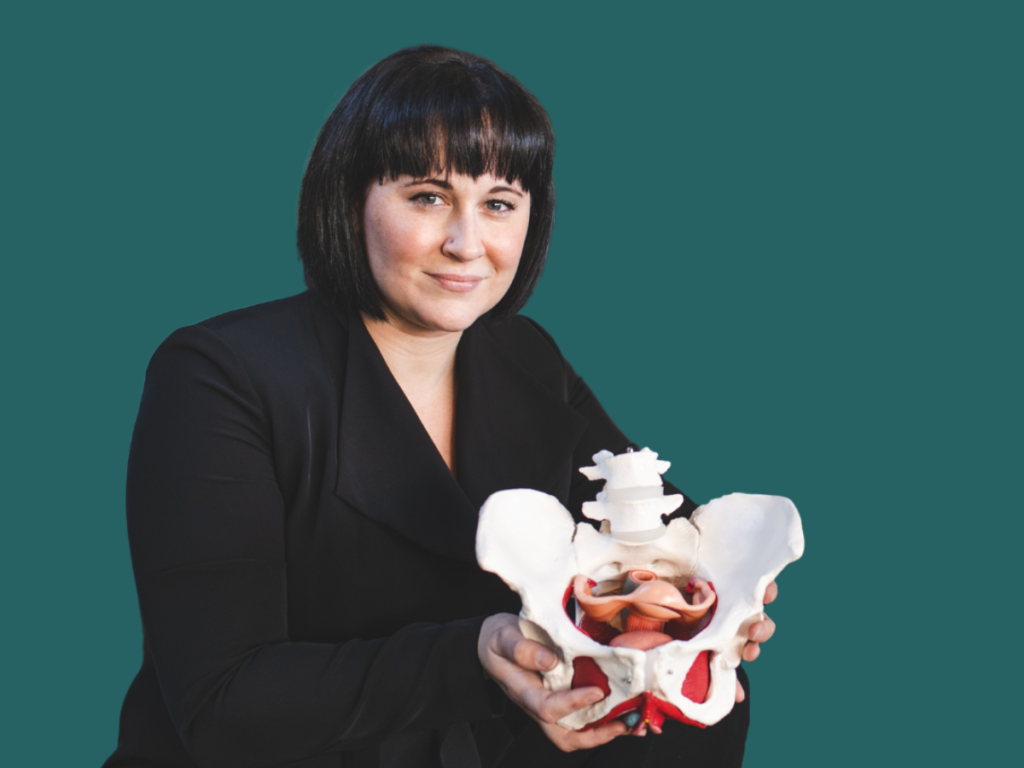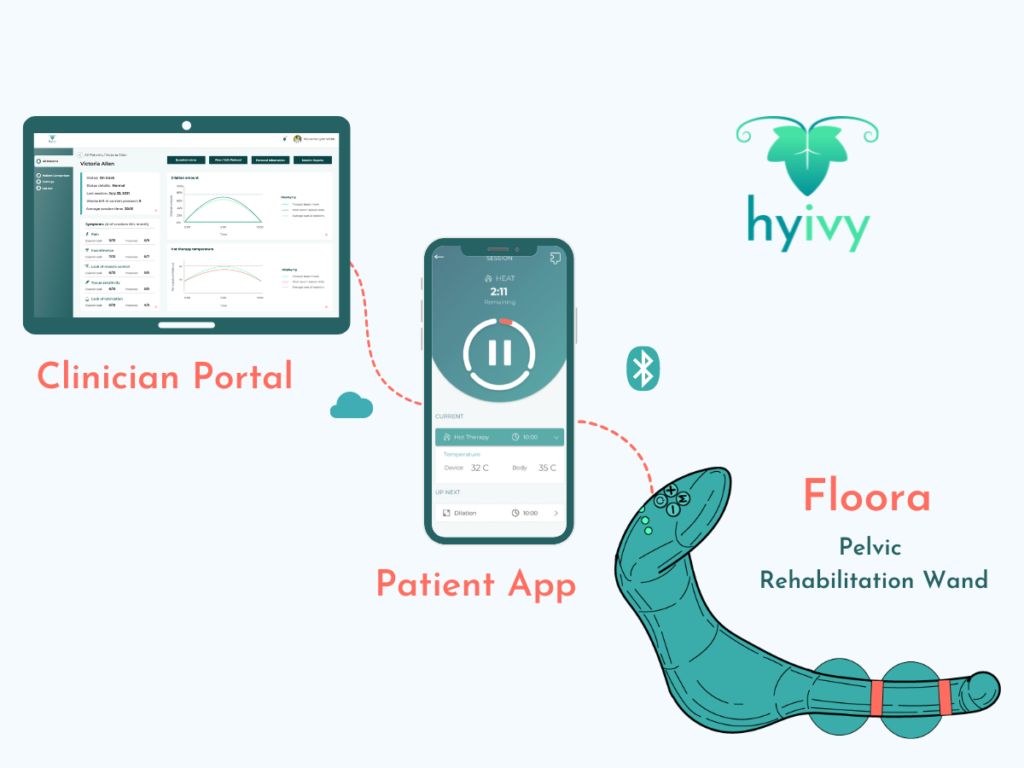
In the world of women’s health, few areas have been as overlooked and underserved as pelvic health. For decades, patients suffering from chronic pelvic pain and related conditions have faced outdated treatments, limited options, and a lack of understanding from the medical community. Enter Hyivy Health, a Canadian startup that’s not just disrupting the status quo – it’s completely redefining how we approach pelvic health care.
Founded by Rachel Bartholomew in 2020, Hyivy Health recently secured $2 million in seed funding to advance its novel Pelvic Health Rehabilitation System. This milestone is more than just a financial win; it’s a testament to the urgent need for innovation in a field that affects hundreds of millions of women worldwide.
A Personal Journey Sparks a Medical Revolution
The story of Hyivy Health begins with Bartholomew’s own health challenge. “I was diagnosed with cervical cancer at 28 years old,” she recounts. “I went through extensive surgery, and when the pathology came back unfavorable, I had to undergo follow-on treatment.”
Many people might not realize the profound impact cancer treatment can have on pelvic health. Surgeries, radiation, and chemotherapy can cause significant changes to the pelvic area, including scar tissue formation, reduced blood flow, and nerve damage. These changes can lead to issues like vaginal stenosis (narrowing of the vagina), chronic pelvic pain, and sexual dysfunction. For many cancer survivors, these long-term side effects can be as challenging as the cancer itself, significantly impacting quality of life long after treatment ends.
During her post-treatment recovery, Bartholomew encountered firsthand the woefully inadequate tools available for pelvic health rehabilitation. When given dilators as part of her treatment plan, she was shocked to discover that these devices had remained virtually unchanged for decades. “When I looked at the dilators I had used ten years prior, they were exactly the same,” she says. “At the cancer center, they were handing out glass test tubes for dilation. I was shocked – nothing had advanced in this field.”
This realization became the catalyst for what would become Hyivy Health. Bartholomew, with her background in entrepreneurship and innovation, saw an opportunity to make a real difference in a field that had seen little progress in nearly a century.
Innovation Through Iteration: The Hyivy Health Journey
Armed with her personal experience and a vision for better pelvic health care, Bartholomew incorporated Hyivy Health in 2020, just before the COVID-19 pandemic hit. While the timing might have seemed unfortunate, she found a silver lining in the global lockdown: “Starting the company during the height of COVID-19 was ultimately the best timing. It allowed me to focus on getting healthy and gave us about a year to dive deep into research.”
The development of Hyivy’s Pelvic Health Rehabilitation System was a process of continuous innovation and refinement. Bartholomew and her team started with a clear goal: to create a device that would address the shortcomings of traditional dilators while providing additional therapeutic benefits. “We asked ourselves, ‘How do we make the transition from smaller to larger dilator sizes less intimidating and more comfortable for patients?'” Bartholomew explains. “This progression is crucial for effective treatment, but it’s often a significant physical and psychological hurdle for many women. Our aim was to create a solution that would make this process more gradual and manageable.”
This iterative approach led to the development of a multi-functional device that incorporates inflation, temperature control, and even drug delivery capabilities. But perhaps the most innovative aspect of the Hyivy system is its integration of sensors, allowing for data collection and analysis that could revolutionize how pelvic health conditions are understood and treated.
“When I founded Hyivy Health four years ago, I knew I was addressing an unmet need for women with chronic pelvic pain, but I couldn’t have imagined the overwhelmingly positive response from clinical researchers who see a multitude of opportunities in taking advantage of our technology,” Bartholomew reflects.
The data sets from the Hyivy system show promising and exciting results for not just the treatment of pelvic pain, but also potential diagnostic capabilities across more than 51 conditions associated with pelvic pain that affect women at any stage of life. Hyivy’s approach serves as a medical connective bridge between patient and healthcare professional, providing the first-ever pelvic and gynecological benchmarking/baselining, real-time monitoring, and therapeutic intervention through the clinician software portal, all while the patient uses the Hyivy device and patient app from the comfort of home.

Dr. Michael Krychman, OBGYN and Executive Director of the SoCal Center for Sexual Health and Survivorship Medicine, sees enormous potential in Hyivy’s approach: “Hyivy Health stands out as one of the key drivers in the industry with the unique potential to transform the pelvic health medical system. The power of the solutions, research, and data accumulated that can be put into action is like nothing I’ve seen across my career. Hyivy stands to empower clinicians with novel and effective tools to streamline and optimize their practice and workflows, as well as ultimately providing better care for patients.”
From the outset, Hyivy Health took a medical-first approach, prioritizing clinical validation and regulatory approval over a direct-to-consumer strategy. The company has already received Health Canada approval for Investigational Use, a crucial step that has allowed the team to launch several clinical trials. One of the trials with Grand River Hospital Regional Cancer Centre involves addressing the needs of large, complex gynecological and colorectal patient populations who have not been studied or supplied with updated treatment options for almost a century. The second trial is led by world-renowned gynecological surgeon and endometriosis specialist Dr. Mathew Leonardi at McMaster University. Hyivy technology is used in his first-of-its-kind study measuring the impact, measurement, and contributors to pelvic pain in endometriosis patients with a new and proven pain management tool.
With these trials underway, Hyivy Health is now setting its sights on FDA approval. Bartholomew shares, “We’ve gone through a pre-submission with the FDA and got the green light for the 510(k) pathway, which was incredible. It doesn’t put us in the de novo category, allowing us to move forward more efficiently.”
Hyivy’s $2 Million Seed Round
Hyivy Health’s recent $2 million seed funding round was led by Zcube – Zambon Research Venture with contributions from a mix of repeat and new investors including Beresford Ventures, Equation Angels, FACIT, mHub, Women’s Equity Lab, and the founding partner of Chai Ventures.
Andrea D’Alessandro, President at Zcube, commented: “Since its participation in the Zcube’s Open Accelerator program in 2020, the innovative potential of this startup has been of great interest to us. We believe strongly in Hyivy Health and are delighted that Zcube – Zambon Research Venture is part of this exciting journey that continues to be marked by important clinical and financial milestones.”
The fresh funds will be crucial in advancing Hyivy’s clinical trials, refining their product, and preparing for market entry. Despite the progress, Bartholomew acknowledges that fundraising in the femtech space remains challenging. “Fundraising in the women’s health space is still a hurdle,” she notes. “The more women we have entering the field of venture capital, the easier it gets, but it’s a slow uptake.”
Looking to the Future
With their seed funding secured and clinical trials underway, Hyivy Health is now preparing for their alpha launch in the United States, with the last year and a half dedicated to unlocking existing reimbursement models to provide effective and affordable care. Starting in California, with over 25 clinics already in their pipeline, Hyivy Health now continues to actively recruit gynecological and pelvic floor physiotherapy clinics to adopt their novel system.
Bartholomew envisions a future where pelvic health is no longer a taboo subject, and where patients have access to effective, data-driven treatments. “We’re at the cusp of a major shift in pelvic health care,” she says. “The medical community is starting to recognize the gaps in knowledge and treatment, and I believe Hyivy is well-positioned to help bridge those gaps.”
As Hyivy Health continues to grow and evolve, it stands poised to not just enter the market, but to fundamentally change how we approach pelvic health. In doing so, it may well pave the way for a new era of women’s health technologies – one where overlooked problems are finally given the attention and innovation they deserve.



